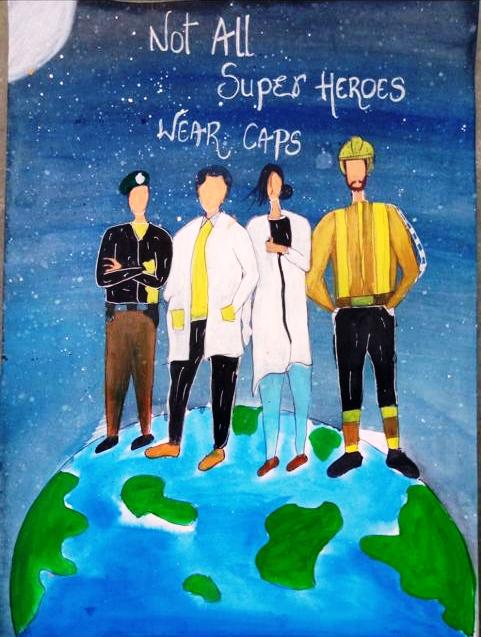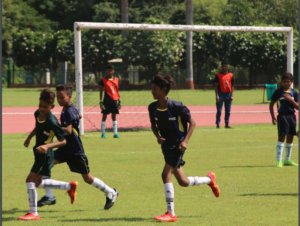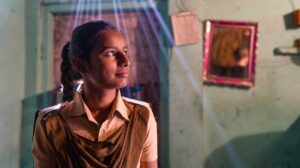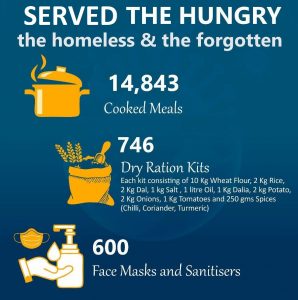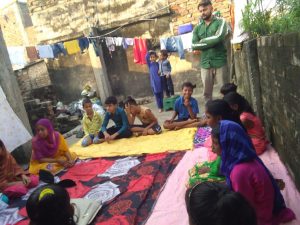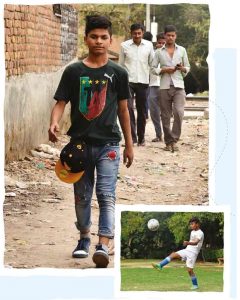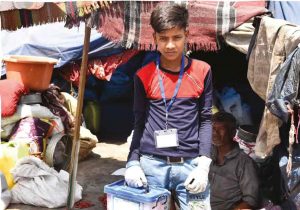How ONE Child Social Protection Committee Member Multiplied Butterflies’ Food Relief Efforts
The following profile of a remarkable woman called Asha (whose name in Hindi means ‘hope’) is an apt, timely example of how Butterflies uses collaborative structures — like the Child Social Protection Committee (CSPC)—to gather collective input that helps street and working children develop initiative and self-reliance.
Over the past six years, as a CSPC member, Asha spotted vulnerable street children and helped them get enrolled in state schools while referring them to Butterflies for programmes ranging from the education cooperative at the contact points to cooperatives such as the Children’s Development Khazana, the Child Health and Sports Cooperative, and the Butterflies Broadcasting Children (BBC).
Then the pandemic hit. Asha has, in true Butterflies spirit, listened to the children’s expressed needs during COVID19. She then determined what she could do with Butterflies to help. This is the inspiring result.
Asha lives near the historic Jama Masjid in Old Delhi where for generations the homeless have worked as porters and street vendors. After a day’s punishing labor, they sleep on congested streets once the few public night shelters fill up or travel back to their villages at night. When the virus erupted, the government imposed its draconian lockdown, sealing the crowded, unhygienic area to control the movement of humans viewed as potential virus transmitters. At this point, people did not know what to do, where to go.
Though providing relief services to this population was risky business, when the strict curfew prevented other members of the CSPC to venture from sheltering in place, Asha was determined. She visited the local police station, obtained permission to visit the sealed areas, and walked the alleys only to learn that some daily laborers, including working kids, lacked essential materials for survival. The government distributed rations but many stranded labourers lacked cooking facilities. As one CSPC member said, “When Asha ji came to me and asked what we could do to support each other and children working in the market, I said that I could offer cooking gas because we had an extra cylinder”.
Given her CSPC role, Asha’s primary focus has been the children who work in tool shops or the market, living independently on the pavement after work. At the start of the precipitous sequestration and railway shutdown, Asha was preparing simple sustenance meals for some of these trapped kids. But her heroic effort was not sustainable both because her husband lost his job — the only source of family income — and because of the increasing scale of the hungry. Alerted to this situation, Butterflies’ School of Culinary and Catering (BSCC) staff stepped in to provide prepared cooked lunches for these homeless children and adults.
When a few Corona-positive cases were detected, the quarantined tightened. BSCC altered its feeding scheme to provide raw food grains, dried legumes, spices, and oil instead of perishable packaged meals. This is when Asha, identified and contacted roughly 80 families in the most critical situations; provided space in her small one room home for safe storage of the bulk rations; mobilized the local police to manage distribution of the Butterflies’ relief supplies; and matched working youth and adults living without families to form groups and cook meals together.
Hear this humble woman view her association with our child rights NGO not as a burden but as a privilege. “My association with Butterflies has given me a great opportunity to learn about people’s lives, their emotions, their difficulties, their challenges. I used to observe their situations from a distance but now I understand their lives better. I would never be able to do it otherwise”


